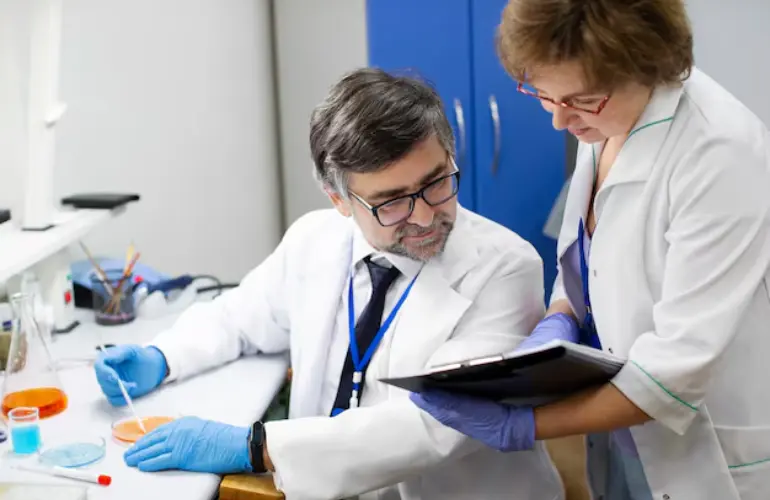An educational diagnostician is a specialist who focuses on identifying and addressing the unique learning needs of students, particularly those with learning disabilities. By working closely with teachers, parents, and other educational professionals, they help design individualized educational programs (IEPs) that provide the necessary tools, resources, and support to ensure student success.
The Comprehensive Assessment Process
The work of an educational diagnostician begins with a thorough assessment of a student’s abilities. This includes standardized tests, observations, and interviews with the student, their teachers, and their parents. Through this process, the diagnostician gathers critical information about the student’s cognitive, academic, and social-emotional development. This data is essential for identifying learning disabilities, developmental delays, or other issues that may hinder effective learning.
Interpreting Data and Recommending Interventions
After the assessment, the educational diagnostician analyzes the collected information to determine the best course of action for the student. They may recommend specific interventions, accommodations, or modifications to the student’s educational program. Additionally, they ensure continuous monitoring of the student’s progress and make necessary adjustments to the IEP if the student is not making expected progress.
Supporting Teachers and Creating Inclusive Environments
Beyond working directly with students, diagnosticians provide valuable support to teachers and other school personnel. They guide teachers in implementing recommended strategies and accommodations in the classroom, fostering an inclusive learning environment that meets the needs of all students. Educational diagnosticians also play a crucial role in training teachers to recognize signs of learning disabilities, enabling early intervention and support.

Essential Skills and Qualifications of an Educational Diagnostician
Becoming a skilled diagnostician requires expertise across multiple disciplines. Strong analytical skills are essential for interpreting assessment data and making informed decisions about a student’s learning needs. Effective communication skills are also vital for presenting findings and recommendations to teachers, parents, and other stakeholders in a clear and professional manner. Diagnosticians typically have a background in child development, learning theories, and special education law and regulation. Read here.
What Qualifications Are Needed to Become an Educational Diagnostician?
To become an educational diagnostician, one typically needs a master’s degree in education, psychology, or a related field, with a specialization in educational assessment and diagnosis. Many educational diagnosticians are also certified or licensed, which often requires passing a national standardized exam and completing a specified number of supervised practice hours. This rigorous preparation is necessary for the complex and sensitive nature of their work.
Career Paths and Specializations for Educational Diagnosticians
The career opportunities for educational are diverse and offer many areas for growth and specialization. Some may choose to focus on working with students with specific conditions, such as autism or dyslexia. Others may take on leadership roles within their school district or pursue advanced research in educational assessment. As schools increasingly prioritize early identification and intervention for students with learning challenges, the demand for educational diagnosticians is expected to grow.
The Impact of Educational Diagnosticians on Student Success
The impact of diagnosticians on students is profound. By identifying learning challenges early and implementing targeted interventions, they help students overcome obstacles and achieve their academic goals. Their work not only benefits individual students but also contributes to creating a more inclusive and equitable educational system.

How Do Educational Diagnosticians Support Students with Learning Disabilities?
Educational assess students to identify learning challenges and then develop individualized education programs tailored to each student’s needs. They implement strategies and accommodations in the classroom to support students with learning disabilities, ensuring they have the tools they need to succeed.
How Do Educational Diagnosticians Work with Students of All Ages?
Educational diagnosticians work with students across a wide age range, from early childhood through high school, and sometimes even in higher education settings. Their expertise allows them to support students at various stages of development and learning.
How Do Educational Diagnosticians Collaborate with Parents and Teachers?
Educational collaborate closely with parents and teachers by communicating assessment results, recommending interventions, and ensuring that these recommendations are implemented to address the educational needs of students. This collaboration is crucial for the student’s success both in and out of the classroom.

Conclusion
Educational diagnosticians play a crucial role in enabling students with learning disabilities and difficulties to reach their full potential. With their expertise in assessment, diagnosis, and intervention, they are essential in creating supportive and accommodating learning environments. As the demand for their services increases, the importance of educational in ensuring equal learning opportunities for all students cannot be overstated.





